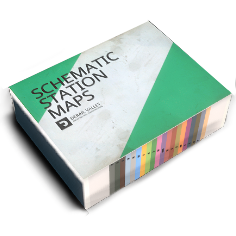(2 intermediate revisions by the same user not shown) Line 1:
Line 1: ブレーキ管は元空気タンクによって加圧され、列車全体に張られたバルブ、パイプ、ホースのシステムです。すべての連結箇所では、台枠に取り付けられたアングルコックと呼ばれるバルブによって空気の流れを手動で開閉できます。これは、圧縮空気が大気中に逃げるのを防ぐために、列車の端で行われます。通常の走行状態では、ブレーキ管は 5 bar の圧力を保持します。
ブレーキ管は、圧縮空気を編成全体に分配するために設計された空気配管システムです。適切に連結された列車では、各車両間のブレーキ管ホースはコックを開いた状態で接続されます。<br/>一方、列車の両端ではコックが閉じられます。これにより、通常の走行中は、圧縮空気が元空気タンクから編成全体のブレーキ管に供給され、{{pll|Monitoring| 5 bar}}まで加圧されます。<br/>ブレーキ管自体の容積は比較的小さいですが、連結された車両が増えるにつれて大きくなります。
Latest revision as of 22:32, 29 April 2025
Information about message (contribute ) This message has no documentation.
If you know where or how this message is used, you can help other translators by adding documentation to this message.
Message definition (Air Brake System Overview ) Brake pipe is a system of air lines designed to distribute compressed air throughout an entire train. On a properly coupled train, air line hoses are connected between individual vehicles with their valves open. At the ends of the train, however, the valves are closed. This allows the pipe to be pressurized at {{pll|Monitoring|5 bar}} in normal running conditions, throughout the train, by available main reservoirs. The volume of brake pipes is relatively low, but it grows bigger with each additional coupled vehicle.
ブレーキ管は、圧縮空気を編成全体に分配するために設計された空気配管システムです。適切に連結された列車では、各車両間のブレーキ管ホースはコックを開いた状態で接続されます。5 bar
